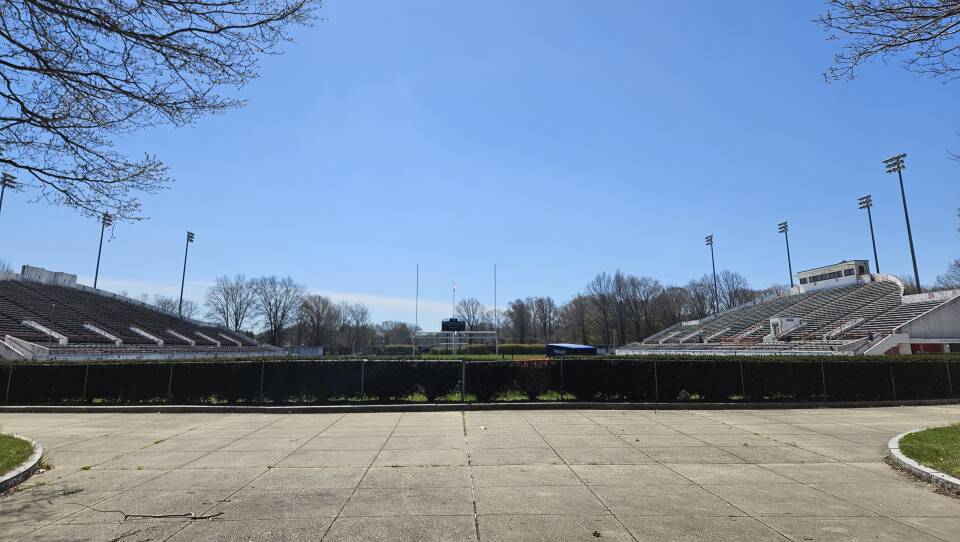The Boston Parks and Recreation Commission on Monday approved the demolition management plans supported by Mayor Michelle Wu for the proposed renovation of White Stadium. The larger project aims to make the stadium a hub for Boston Public Schools athletics and a home for a National Women’s Soccer League team.
The vote is a big move for the project, which is at the center of a lawsuit from opponents who believe it amounts to privatization of a public stadium. Critics also say there hasn’t been enough community input. Earlier this year, a judge dismissed a request for an injunction against the project.
The move comes after the commission failed to approve the demolition specifics last month . This time, the plans were approved in a 7-0 vote with four stipulations: a lease must be executed before demolition begins; the project must return to the parks commission for final approval; the parks and recreation staff will remain engaged on the project; and a public meeting about the city’s tree canopy must occur before thee demolition gets underway.
Under the current timeline, demolition is set to begin sometime around September or October.
Discussion around the project has led to a divide among residents around the Franklin Park area and between members of the City Council.
Speaking during Monday’s meeting, District 2 councilor Ed Flynn, who had previously spoken against the proposal, asked that the commission not take a vote.
“You’re impacting a significant several neighborhoods, many of them communities of color. They feel like they’re not heard,” Flynn said. “And if residents don’t feel like they’re heard, I feel that the process should not go on.”
In a statement, Karen Mauney-Brodek, president of the Emerald Necklace Conservancy, described the plan as “deeply flawed” and urged state officials to examine it and step in.
People just want to, in detail, understand start to finish, 'How is this going to play out? How is it going to impact me?'Tania Fernandes Anderson, District 7 Councilor
District 7 councilor Tania Fernandes Anderson expressed support for the project, but noted that there are concerns from constituents.
“For the majority of the district, they support the project. Again, it’s the different issues with transportation, residential parking...and then the comprehensive construction plan,” she said. “People just want to, in detail, understand start to finish, 'How is this going to play out? How is it going to impact me?’”
Major steps still need to take place before crews break out any hard hats.
Dion Irish, chief of operations for the mayor’s office, said during the meeting that the city and Boston Unity Soccer Partners, the group working to bring an NWSL team to White Stadium, hope to have a lease agreement by early fall, allowing site preparation and early demolition to begin then. And Jennifer Epstein, controlling partner of BUSP, reiterated the organization’s commitment to an ongoing community engagement process.
Parks and recreation commission member Eugene Bolinger acknowledged the ongoing debate surrounding the project.
“It seems to me that we have a facility that some might consider to have been an intrusion way back in the 1940s,” he said, referring to when White Stadium was built. “And now we have an intrusion from the 1940s that’s in deplorable condition.”
To him, this proposal appears to meet the needs of the Boston Public Schools system and the community at large, something he described as “critical.”





